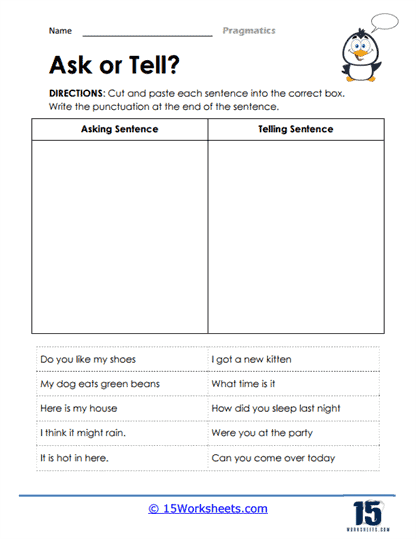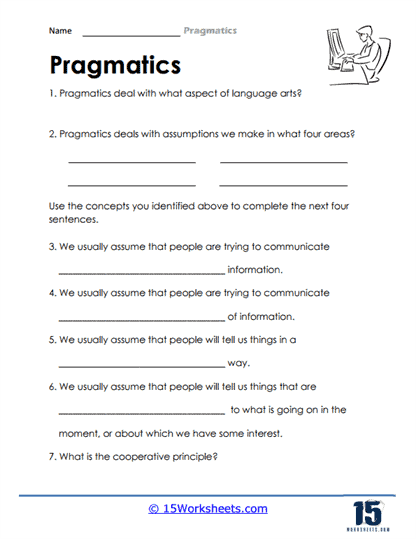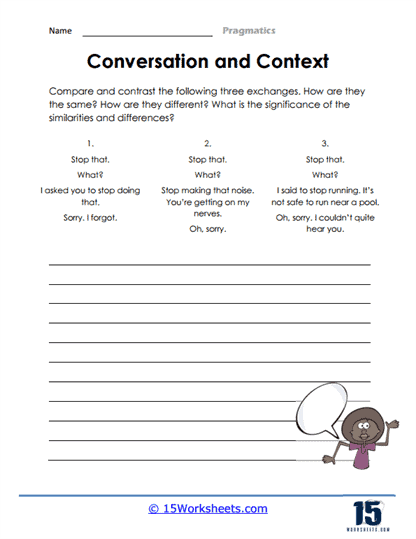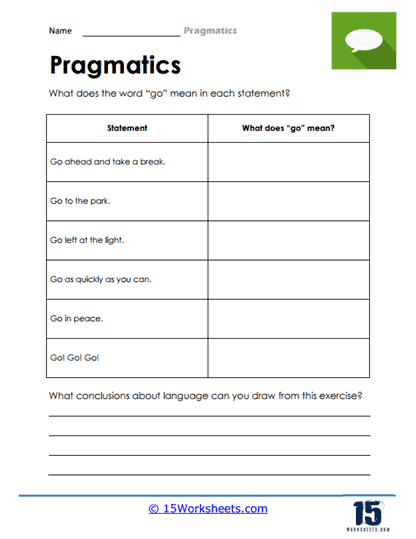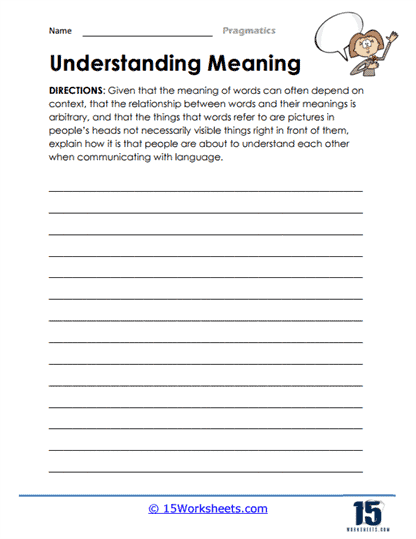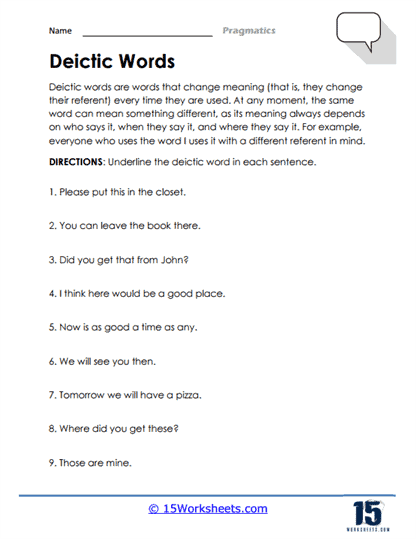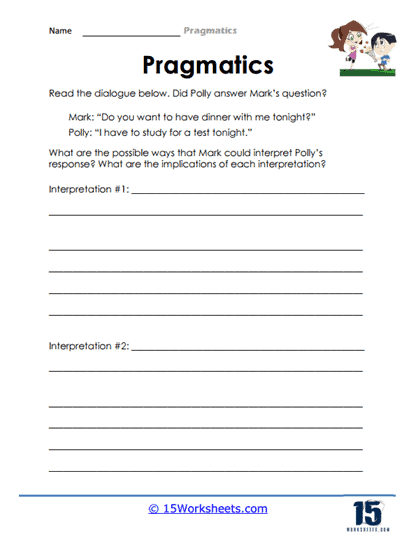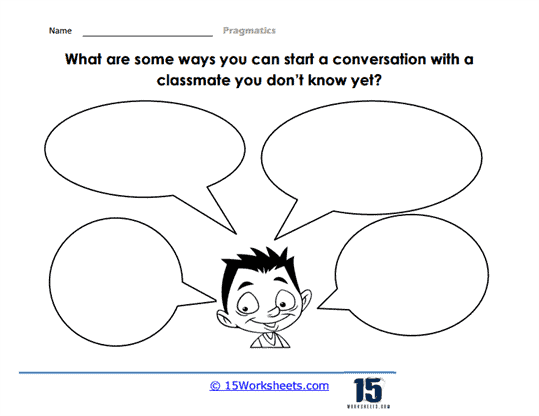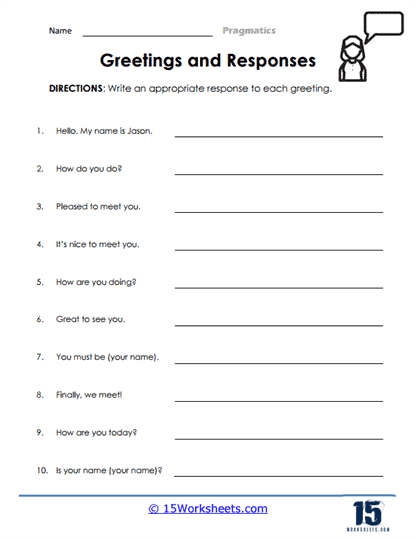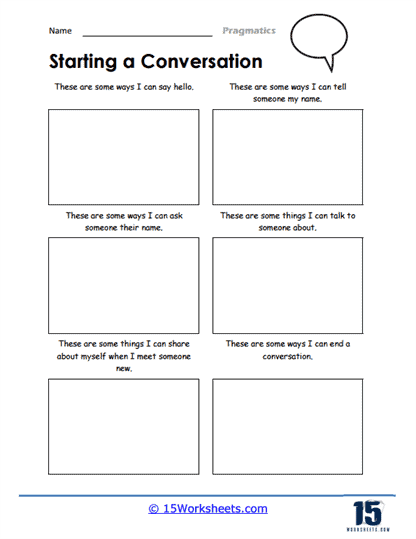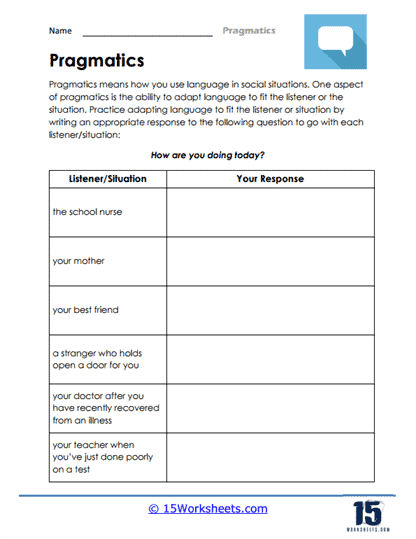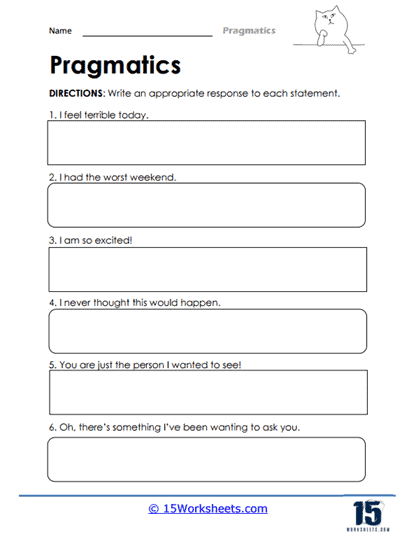Pragmatics Worksheets
All About These 15 Worksheets
These pragmatics worksheets are a valuable resource for teaching and reinforcing this important aspect of language. Pragmatics refers to the study of how context affects the meaning of language, including the use of language in social situations, the interpretation of non-literal language, and the understanding of implied meanings.
These worksheets include activities and exercises that help students develop their pragmatic skills, such as identifying the intended meaning of a statement, understanding deictic words, recognizing the appropriate use of language in different social situations, and more. Through these worksheets, students will:
- Know how to adjust language depending on the social situation;
- Distinguish asking sentences from telling sentences;
- Show mastery in the concept of pragmatics by answering writing prompts and showing how one should respond to certain situations;
- Discuss the cooperative principle and its aspects/assumptions;
- And understand deictic words and how words can change meanings according to context.
By completing these worksheets, students can improve their ability to communicate effectively in a variety of contexts and better understand how language is used to convey meaning beyond its literal interpretation. Additionally, these worksheets can help students become more aware of the social and cultural factors that influence communication, which is an important skill for success in both personal and professional settings.
What Are Pragmatics In the English Language?
Pragmatics in linguistics refer to what the speaker may imply and the listener may infer depending on the situational context, peoples’ mental states, willingness to be truthful, and preceding dialogue among other elements.
Read the following sentences and think about how many ways you can interpret them. Do you feel the need to know the context while trying to infer the meaning of each sentence?
– He’s on fire!
– What’s up?
– That way!
Next, consider these sentences. Sentences with demonstrative adjectives – these, that, and there – must have context behind them to make complete sense to the reader or listener.
– These are amazing!
– I need that one!
– I’ve been there!
Importance of Pragmatics
Pragmatics help us understand the context of interactions. Without pragmatics, we would have to make long explanations to make the others understand our point. There would be no slang in any language and more than half of the jokes we know now will become obsolete.
Examples of Pragmatics
Scene 1: You are sitting with your brother in his bedroom and he says, “It is stuffy in here. Isn’t it? “
If taken literally, your brother is telling you the room is airless and in the same breath confirming that it isn’t. Because we know the preceding dialogue, we can infer that your brother is declaring the room to be stifling and not asking for your opinion.
Scene 2: You’re teaching a class and a student keeps checking their watch. They are not paying any attention and suddenly, they say, “Oh, look at the time!”
It is easy to infer from their body language that they are indicating that it is time for the class to end, rather than asking you to literally check the time.
Scene 3: A homeless person is asking a woman for money. She’s refusing to give anything to him and he says, “Put yourself in my shoes.”
Here, it is unlikely that the homeless person wants the woman to wear their shoes. They are only asking her to try and feel what they’re going through.
Different Theories in Pragmatics
1. The Cooperative Principle
This theory by Paul Grice explains that conversations succeed when the speakers make their point known by being truthful and clear, and providing maximum information.
2. Politeness Theory
Created by Penelope Brown and Steven Levinson, the politeness theory explains the effect of adding politeness in conversation. This refers to using conversation to boost one’s self-esteem and avoid humiliation.
3. Conversational Implicature
Sometimes only known as ‘implicature,’ this is yet another theory of Paul Grice. Conversational implicature refers to the acts of indirect speech. Relying heavily on the co-operative theory, conversational implicature requires the speaker and listener to Co-operate. A speaker only has to imply something and hope for the listener to understand it.
An example would be if your mother asks you whether you finished your homework and you answer that you’ve finished your science homework. Hearing this answer, your mother can (rightly) infer that you still have some homework left.



